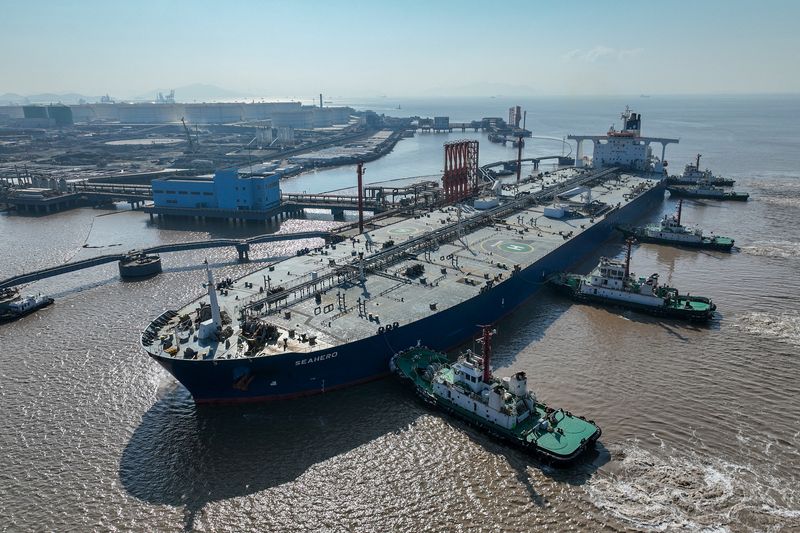By Rahul Paswan and Kavya Balaraman
(Reuters) -Oil prices will not change much in the second half of 2024 as concerns around demand from China and prospects of higher supply from key producers counter risks from geopolitical tensions, a Reuters poll indicated on Friday.
A poll of 44 analysts and economists surveyed by Reuters in the last two weeks forecast the global benchmark, , would average $83.93 per barrel in 2024, just shy of the $84.01 consensus in the previous month’s poll.
The forecast for average 2024 , at $79.72, was slightly above May’s poll result of $79.56.
Brent crude futures have averaged $83.4 thus far in 2024, after brief spikes to as high as $92.18, driven by supply risks due to the conflict in the Middle East. [O/R]
“Beyond the noise, oil prices seem stuck in a sideways trend,” with supply and demand providing little direction and storage levels floating well within seasonal norms, said Julius Baer analyst Norbert Rücker.
However, a few analysts said prices could jump to the $90 mark and potentially beyond, depending on a variety of factors including summer consumption, the geopolitical situation in the Middle East, and output curbs from the Organization of the Petroleum Exporting Countries (OPEC).
Analysts expect oil demand to grow by between 0.99 and 1.4 million barrels per day (mbpd) in 2024, slightly above the 0.96 mbpd forecast by the Paris-based International Energy Agency.
On the supply side, meanwhile, most analysts noted that crude production from non-OPEC countries is rising.

If OPEC+ moves ahead with gradually unwinding its current production cuts from October, the market could move into a small surplus by the end of 2025, said William Weatherburn, analyst at Capital Economics.
Earlier this month, OPEC and allies led by Russia, known as OPEC+, opted to slowly unwind output cuts of 2.2 million bpd over the course of a year beginning in October, while extending cuts of another 3.66 million bpd through the end of 2025.

